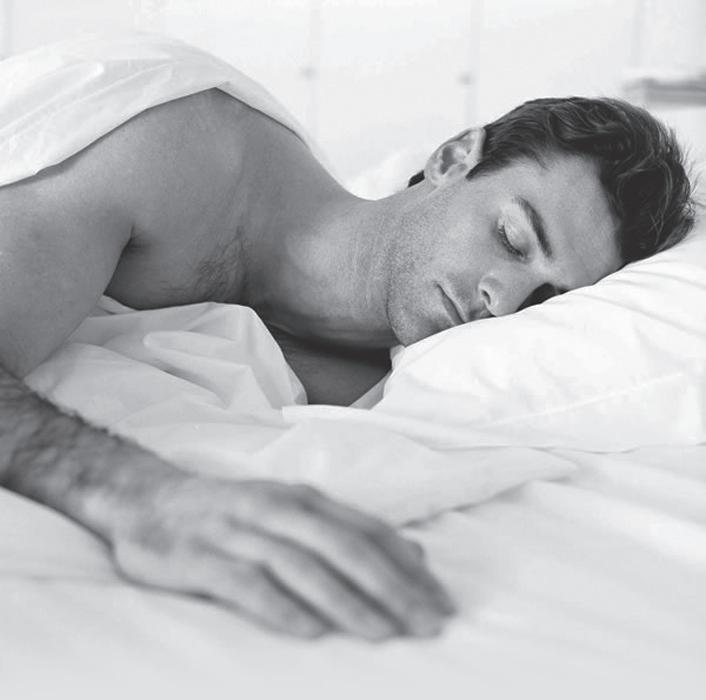
4 minute read
Tuning in to Nature
from 2010-01 Sydney (2)
by Indian Link
FARZANA SHAKIR explores the benefits of early rising
It’s second on my list of New Year’s resolutions, just below ‘making time to write more’. Our grandparents swore by it, and many religions endorse it.
The famous Benjamin Franklin observation, ‘Early to bed, early to rise, makes a man healthy, wealthy and wise’ caught my fancy, and I embarked on a mission to find out if there was any truth to the claim. I wasn’t surprised to discover that there have been hundreds of experiments on the relationship between sleep and health, and scientists have discovered that to keep optimum health, one should sleep with the birds and rise before daybreak. The benefits of sleeping between 10 pm and 6 am are profound and in contrast, going to bed by 11 pm or later have been found to be detrimental to health, linking the habit directly to many modern diseases such as heart problems, liver diseases and cancer.
If you look around in Nature, you will find that everything follows a precise rhythm influenced by the rotations of the sun, moon and the earth. Sleeping and waking are part of that natural cycle just like the changes in seasons, the rising and setting of sun, the lunar cycle etc. The human body, like those of animals and plants, is meant to observe a natural rhythm to function at its optimum. This natural cycle is known as our body clock. Disruption of this due to incorrect sleeping patterns results in many diseases. This is mainly because the hormones and chemicals determining our energy levels are thrown out of sync, making us feel imbalanced and out of tune with our body clock and nature. Before the invention of electricity, people used to sleep early as intended by nature, and availed of the best times to sleep, that is, 10pm to 6am. Between these hours the human body is designed to rest, repair, detoxify and rejuvenate. If we stay up late partying, working or eating, our energies our focussed on functions other than rest and recuperation. Our main body systems work according to a schedule. l 9 pm – 11 pm is when the body gets rid of toxins from the immune system. The lymph nodes responsible for this function work best if the body is in a restive mode. Meaning one should be fast asleep by this time. l 11 pm – 1 am is the time set by the body clock for the liver to eliminate harmful chemicals and rejuvenate. For this organ to properly execute this function, the body once again, has to be asleep. l 12 am – 4 am is said to be the time when bone marrow performs its primary function. l 1 am – 3 am is when the gall bladder rejuvenates by expelling toxins. l 3 am – 5 am is the ideal time for your lungs to eliminate toxins and recover from any wear and tear. l 5 am – 7 am is the best time to empty the bowel as the colon is ready to expel all the toxins the body has produced in the process of cleansing through the night, and in doing so the colon itself eliminates poisons and rejuvenates. l 7 am – 9 am is the time to have breakfast as the body is thoroughly clean and ready to absorb nutrients through the small intestine. While it is important to avail of the best time to sleep, it is also imperative that we provide ourselves the ideal conditions that will be conducive to a productive sleep. Firstly, the bedroom should be totally darkened. When we sleep in a pitch dark room our brain produces a hormone called melatonin. This important antioxidant protects our DNA structure and prevents cancer. Even a small amount of light like that coming from a clock, a window or even a mobile phone charging could instantly shut off the production of melatonin. The second thing that we can do to regulate out biological clock and promote a well balanced sleeping pattern is to get some sunlight everyday and exercise moderately. Keep the bedroom free from electromagnetic fields by banishing the TV, computer and any other electronic item from it. There is no better tonic than having a hot shower before bed. Avoid drinking any fluids at least two hours before bed and make an effort to get up and go to sleep at the same time each day, until the body gets set into its natural rhythm, after which the body clock will function so well, you wouldn’t need an alarm clock to wake you up in the morning.
Researchers have proved that sleeping early is good for our immune system. People who regularly sleep late at night are susceptible to infections. This is because the detoxification process works best before midnight. Sleeping early strengthens our metabolism and hence our ability to sustain exertion. It reduces levels of stress and inflammation in the body, while bolstering memory and keeping us alert as the memory consolidation process occurs during sleep. Sleeping early has also been linked to losing weight, as the hormones ghrelin and leptin responsible for regulating appetite function during sleep.

Benjamin Franklin also said: ‘The early morning has gold in its mouth’ and indeed there is “a high correlation between success and rising early,” says writer Steve Pavlina. Some advantages of waking up early are that you get more time to prepare for your day, you feel less anxious and rushed. A walk in the park at this time is exhilarating as the air is crisp and fresh, and after a night of cleansing, the lungs are ready to absorb the goodness it offers. Early morning is the best time to study, meditate, pray, exercise and work as all systems are functioning at their optimum. By the time the rest of the world wakes up, the early riser has already had a headstart and that’s what you need to succeed in any race.
So there you have it, I’m convinced that ‘Early to bed, early to rise makes a man healthy, wealthy and wise’ and it’s still not too late to add it to your list of New Year’s resolutions too....that’s if you wish to succeed.















